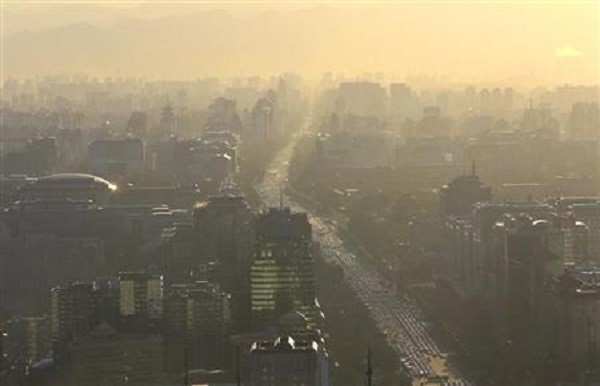China's economic development and industrial growth have taken a toll on its people with a new study revealing that air pollution in the country, which is home to around 1.4 billion Chinese, accounts for 1.6 million deaths per year, that's about 4,400 per day or three lives lost every minute.
This staggering number translates to roughly 17 percent of all deaths in the country according to a scientific paper released by the independent non-profit research organization Berkeley Earth, and to be published in the journal PLOS ONE.
Cardiorespiratory problems have plagued the population due to airborne particulate matter emitted from numerous electric power plants, industrial facilities, automobiles, biomass burning, and fossil fuels used in homes and factories for heating across the country.
The study also found out that close to 40 percent of the people living in China are exposed to an air quality which is deemed by the US Environmental Protection Agency as "unhealthy," according to The Guardian.
"It's a very big number," Berkeley Earth's leading scientist Robert Rohde said. "It's a little hard to wrap your mind around the numbers. Some of the worst in China is to the south-west of Beijing."
The air pollution data were based on hourly readings from 1,500 sites around the country collected within a period of four months. It shows that the particulate matter which is less than 2.5 microns in diameter, PM2.5, poses the most risk, and could cause lung cancer, heart attack, strokes, and asthma.
Richard Muller, founder and scientific director of Berkeley Earth, told Bloomberg in an e-mail that the air quality in Beijing the last time he went there was in such a hazardous level that 20 minutes of your life is lost for an hour of exposure, which is like smoking 1.5 cigarettes.




























